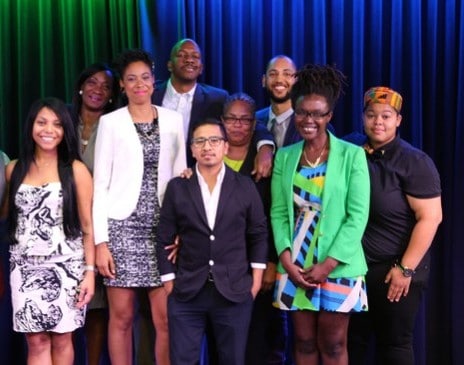The Code for Progress fellowship graduated its first-ever class of newly trained coders last week, introducing a new wave of politically minded entrepreneurs to the technology industry.
The graduation ceremony for the new class of coders looked more like a rally for slain teenager Michael Brown from the outside looking in.
According to GoodBlackNews.org, the ceremony kicked off with a freedom chant in honor of the slain 18-year-old from Ferguson, Missouri. who was fatally shot multiple times Aug. 9 by police officer Darren Wilson.
“What side are you on my people,” the chant asked. “What side are you on?”
The nation’s reaction to the shooting of Brown made it clear that when technology and political activism come together, a powerful movement can be created in an instant.
What began as hashtags on Twitter and Instagram spurred into nationwide marches, rallies and protests pushing for justice for Brown and all the other Black men who have been killed by law enforcement.
The Code for Progress fellowship has always acknowledged this powerful relationship and has been busy training classes of politically minded individuals to provide them with skills that will allow them to exceed in the tech industry.
The fellowship takes things far beyond the world of social media, however.
The new graduates spent four months learning from instructor Aliya Rahman.
Rahman taught the class a handful of different coding languages they will need to exceed in the tech industry.
While the fellowship focuses on bringing politically minded individuals into the tech space, it also caters to minorities and aims to help solve the diversity issue that currently exists in the technology field.
Diversity statistics revealed by companies such as Google and Facebook revealed that the vast majority of their employees are White males.
For both companies, about 60 percent of their employees were male with less than 5 percent of all employees being African-American.
According to Rahman, the fellowship can help improve those numbers by giving minorities access to the education they need.
“Folks who are in communities of color have a higher probability of going to a school that doesn’t teach computer science,” she said. “Seven kids took the advanced placement computer science exam in Washington, D.C., [last year] compared to hundreds in Maryland and Virginia.”
Rahman also pointed out that many women and minorities are intimidated by the college-level computer science course because they are “unwelcoming” and tend to have “unsupportive” faculty.
Lastly, the cost of the classes makes them largely inaccessible to many minorities, she added.
While Rahman believes the fellowship has the ability to train people of color and women to kick start a career in the tech industry, she believes cultural issues in America could still pose a serious problem.
She explained that when Google responded to backlash about its diversity statistics, the company immediately suggested free classes for women and people of color.
According to Rahman, however, many minorities and women are already qualified for the job but are passed up for leadership positions.
“I think affinity groups in organizations play an incredible role in creating community, but in terms of pipelining [people of color] into major positions of leadership – who holds the power?” Rahman said.
Despite the cultural obstacles, the fellowship will continue to push forward with its mission.
The Code for Progress has already made plans to graduate two more classes of fellows next year.

